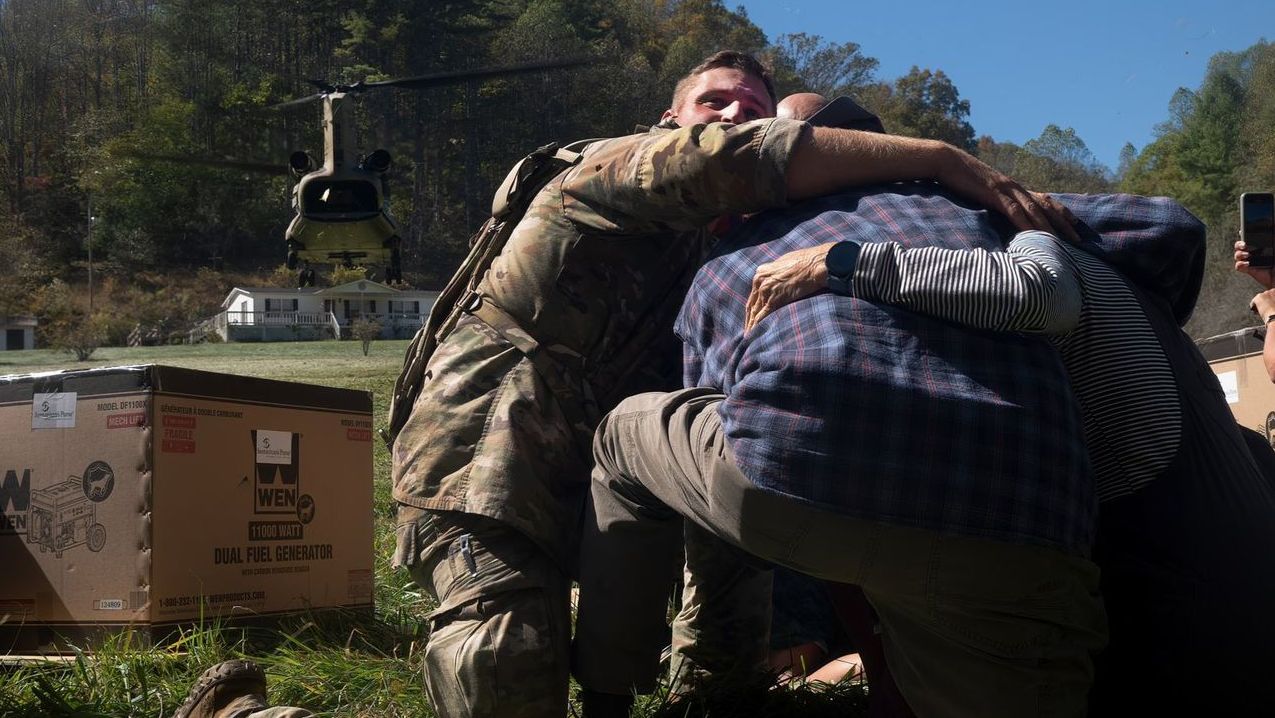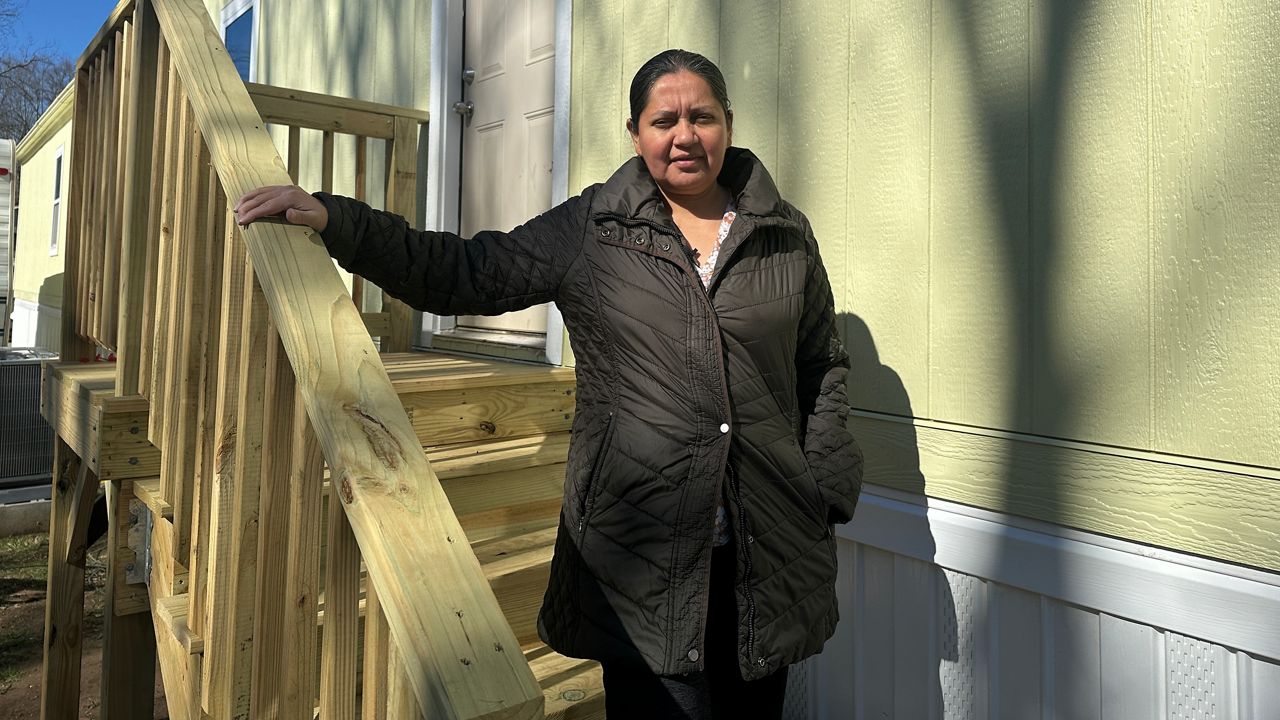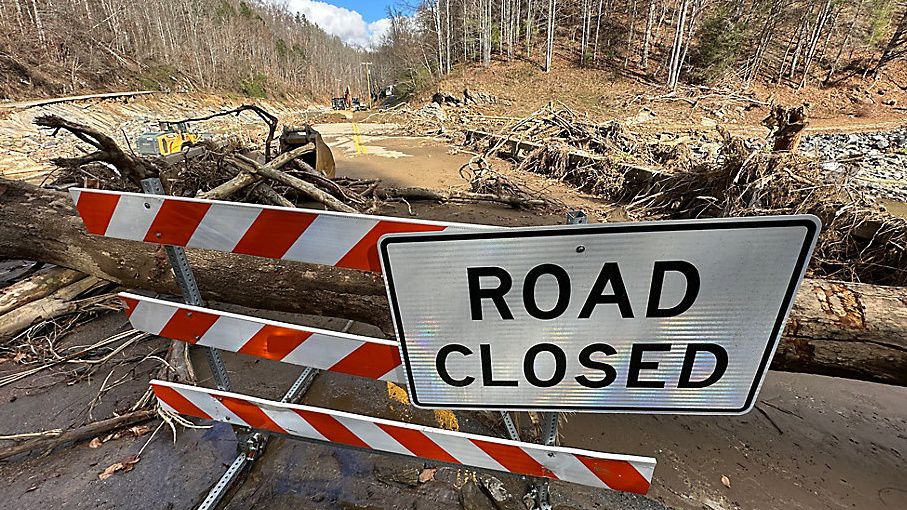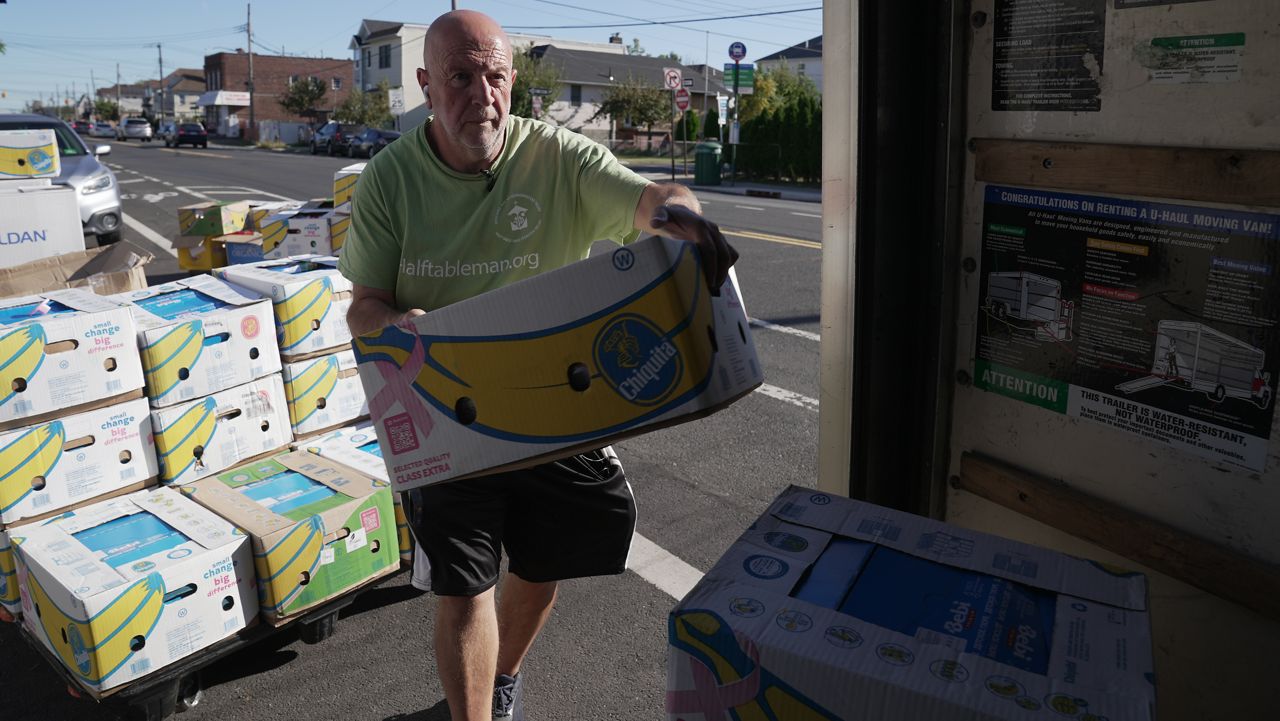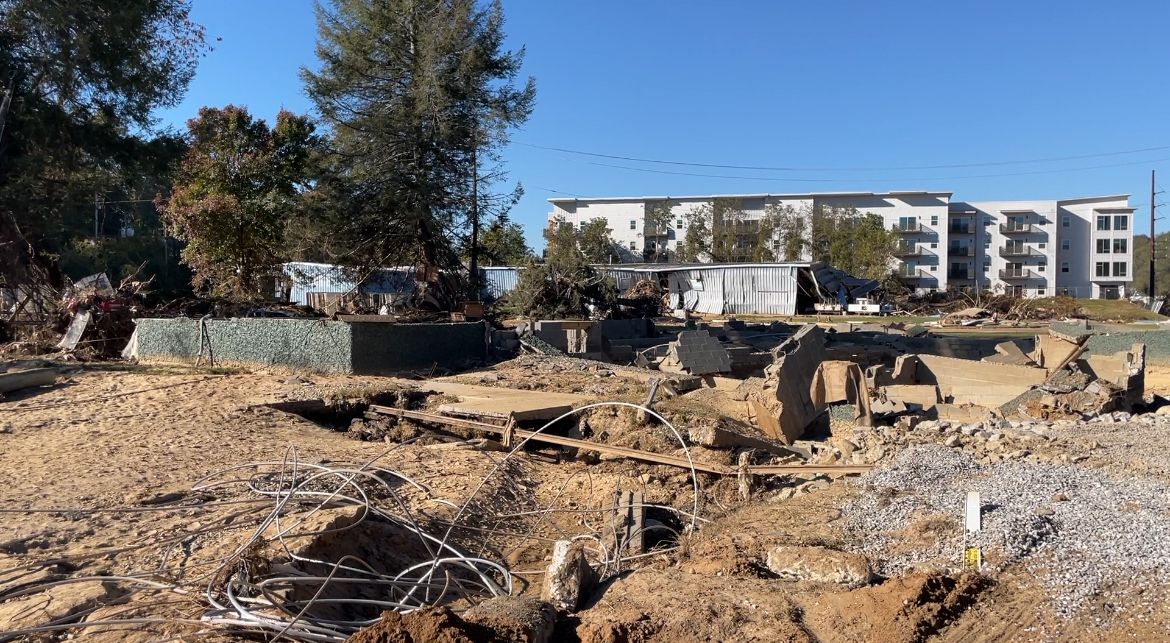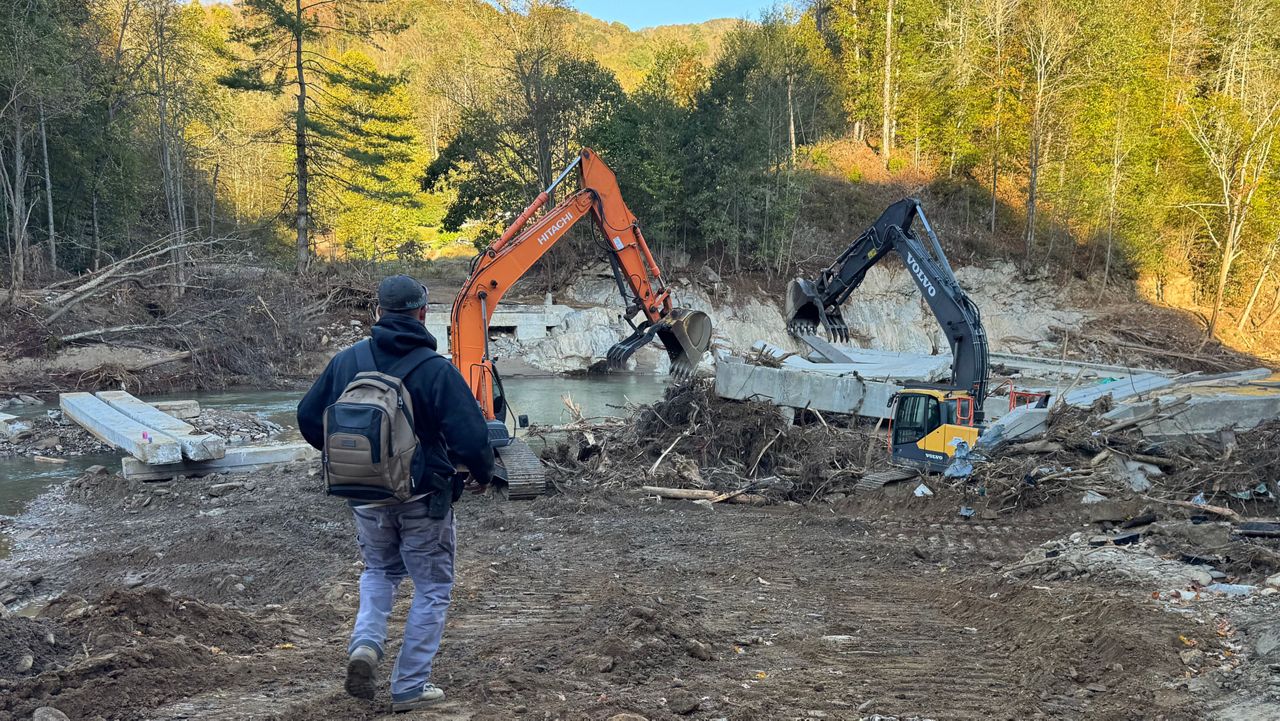It was early on a Friday and western North Carolina expected to see rain from Helene as the storm moved through. It brought the potential for flash flooding, downed trees and power outages. Rain had already been falling in the area, saturating the ground and causing rivers to swell.
Since Helene hit North Carolina, Spectrum News 1 has sent teams of reporters and photographers to the most devastated areas and beyond. Our reporters have stayed with the story, putting a spotlight on the struggles and needs of the communities.
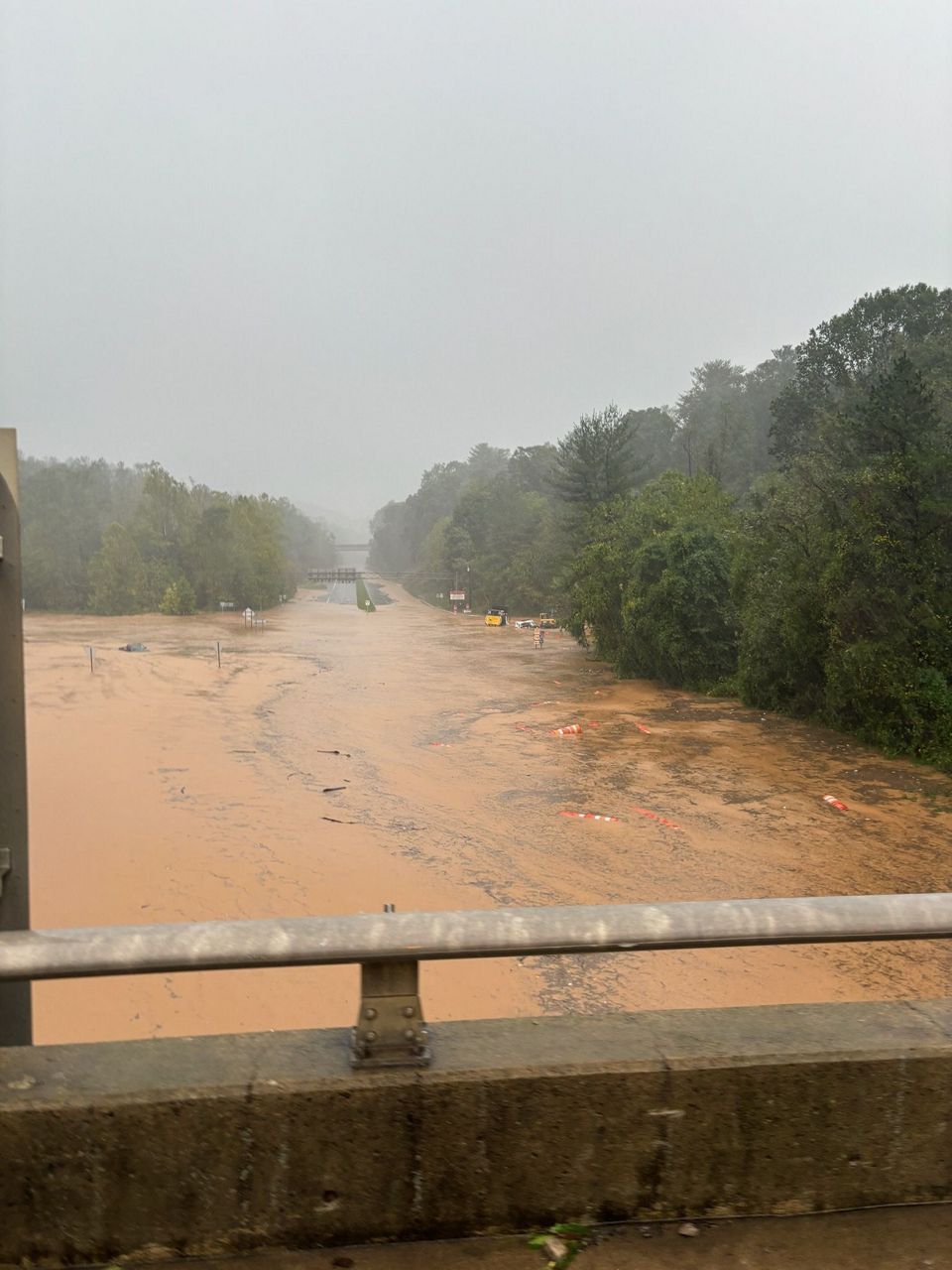
Some families put a hold on their weekend plans to see what would come from the storm. No one was prepared for the devastation that was about to unfold — homes and buildings washed away, people and pets trapped, family and friends missing, roads disappeared underwater and landslides. The damage cut off running water and power for weeks in some places.
Helene made landfall as a Category 4 storm in Florida's Big Bend on Sept. 26, and moved through western North Carolina the following day, Sept. 27.
Some phones chimed with flood alerts, while others in the hardest-hit areas lost service before the alert could arrive. It was a nightmare that many people are still recovering from.
Places where people live, work, visit and vacation were suddenly unrecognizable. Many places still are.
The community came together to check on neighbors, while residents from across the state donated money and supplies they hoped would get to those who needed it most. State, county and city leaders, emergency officials, health care providers and volunteers worked around the clock to offer their services.
Journalists worked to get vital information to residents, although many people were unreachable due to power outages and loss of service from downed cell towers.
Spectrum News 1's own multi-media journalist Rose Eiklor lives in Boone, a community that was hit hard by Helene. Eiklor was out of town when the storm hit, but she returned to find her home destroyed. Mold had taken over nearly everything, she said.
"Being out of town when a hurricane hits is both a blessing and a curse," Eiklor said. "Knowing your neighbor's house was hit by a landslide and not knowing if your home is still there, is a horrible feeling."
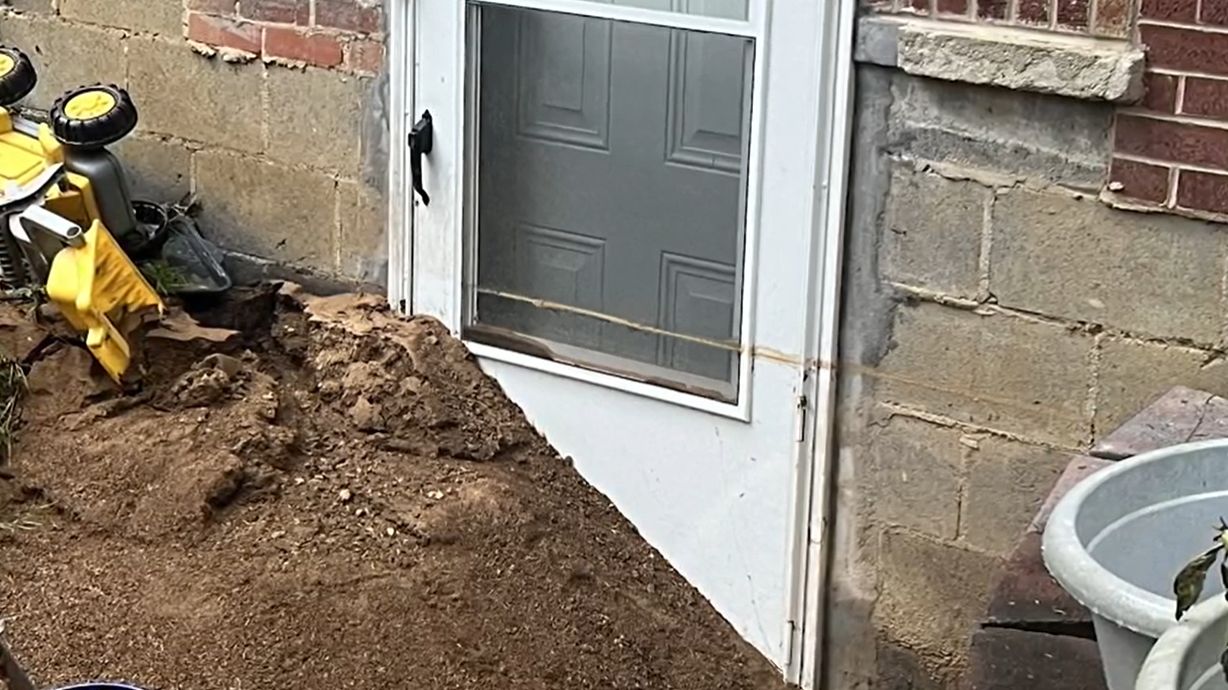
Eiklor's family is one of many still working to rebuild.
"Our first floor was full of water, fences knocked down, sink holes opened in the yard, and there was mud so thick it was impossible to open a door," Eiklor said. She had to move her family temporarily to a hotel in Boone.
Here are some of the top stories from Spectrum News 1 on the storm and the recovery:
First person: Reporter came home to find her home and community damaged by Helene
Many people were unable to get to a hotel or stay with family or a friend. Some residents stayed in the remnants of their damaged home. Buncombe County officials urged people staying in their homes, who may have lost a door during the storm, to keep any trash or food, likely spoiled, outside of the home in case a hungry bear was nearby.
Beware of Bears: Helene caused an increase in interactions with people
Spectrum News 1 anchor Justin Quesinberry spent time in his hometown of Bee Tree in Swannanoa, an area that was ravaged by floodwaters during Helene. Businesses and lives were lost, and now the community is working to rebuild.
"This is mind-boggling. Nothing like this ever happened before, literally, and we couldn't conceive or fathom the devastation or the amount of water or how fast it came through,” said resident Charlene Hammond. She’s lived in a mobile home park in Bee Tree for 11 years.
Landslides
About 5 inches of rain in an hour can trigger a landslide, and some parts of western North Carolina measured up to 30 inches from Helene.
The North Carolina Geological Survey said there were almost 2,000 landslides during the storm.
Mapping Helene's nearly 2,000 landslides could make western N.C. better prepared for future storms
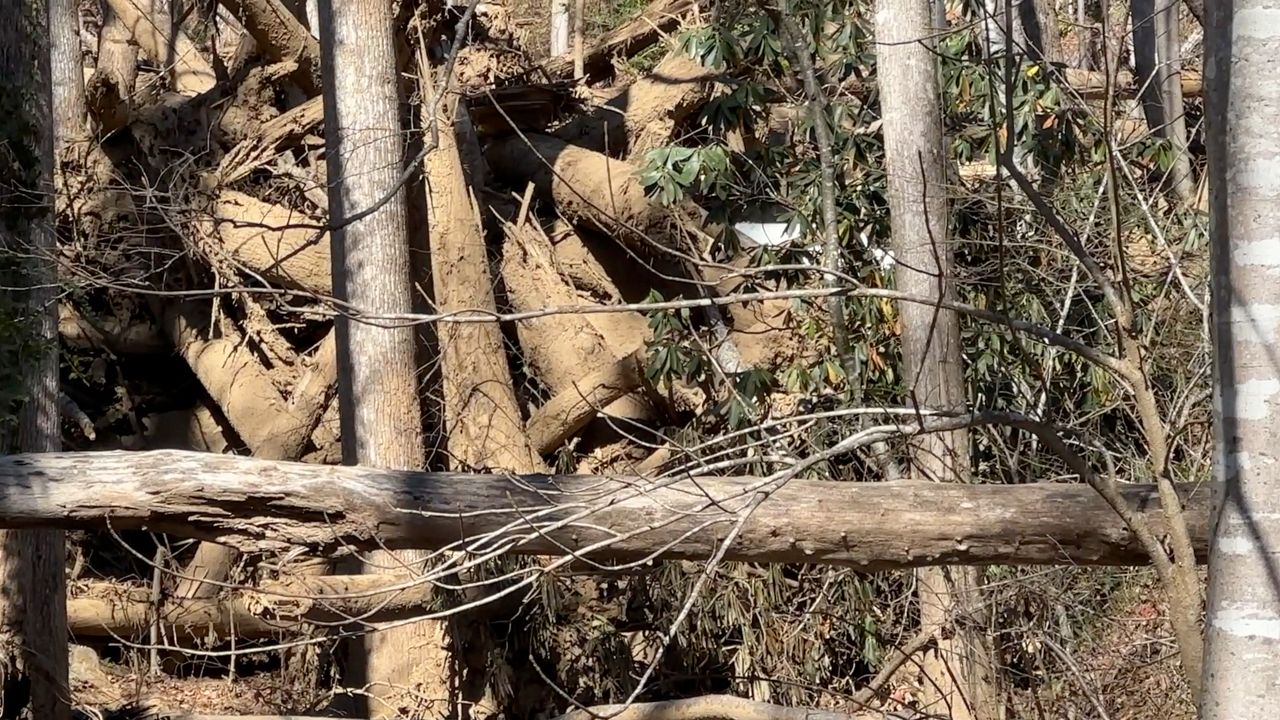
Boone resident Sam Gibson said he looked up and saw floodwaters rushing off the mountain during Helene. Three trees stopped a landslide heading toward him, he said.
"That right here is the reason I'm able to talk to you," Gibson said of the trees. "I would be a dead man today."
Man's property was saved when trees blocked landslide
About two hours southwest, the town of Chimney Rock was nearly wiped off the map when the Rocky Broad River swelled and mudslides followed. Homes and businesses on Main Street were washed away.
The river is typically 50 to 70 feet wide, but expanded to 200 feet in some areas with the floodwaters, according to Nathan Moneyham, construction engineer with the North Carolina Department of Transportation.
Crews, volunteers work to restore Chimney Rock
Donations
Communities and families still need help. For those who can't contribute monetarily, there are plenty of ways to donate your time. Western North Carolina also asks to keep the mountain businesses in mind for tourism, or when shopping for Christmas gifts.
Many Christmas tree farms were damaged during the storm, but some are still operating.
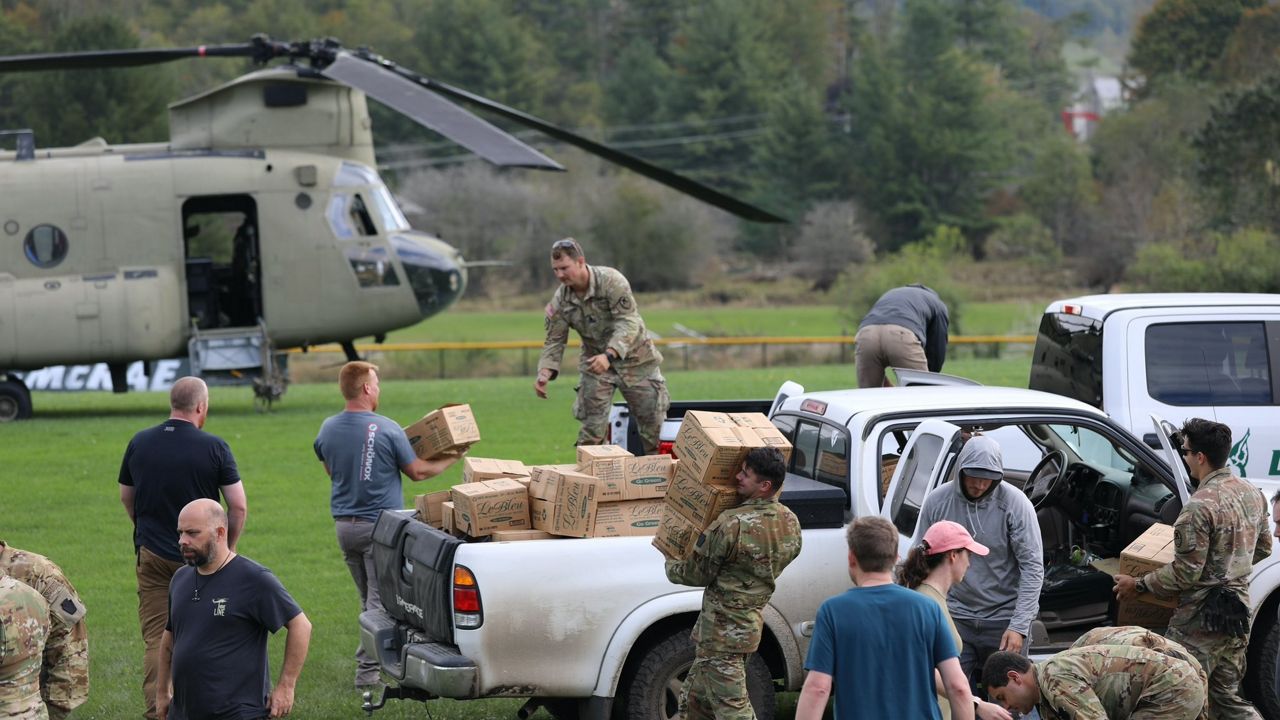
Want to help those recovering from Helene? Here's how
Dealing with loss during the holidays offers a different layer of devastation. Christmas will look different for families in western North Carolina this year. Money intended for gifts may be going to home repairs, and some families may not be able to celebrate Christmas in their home. Others will be missing loved ones from the dinner table.
Businesses are grappling with losses too.
Christmas tree farms lost thousands of trees (many of which took years to grow) to mudslides. Farm owners lost property, but also revenue that they rely on each year.
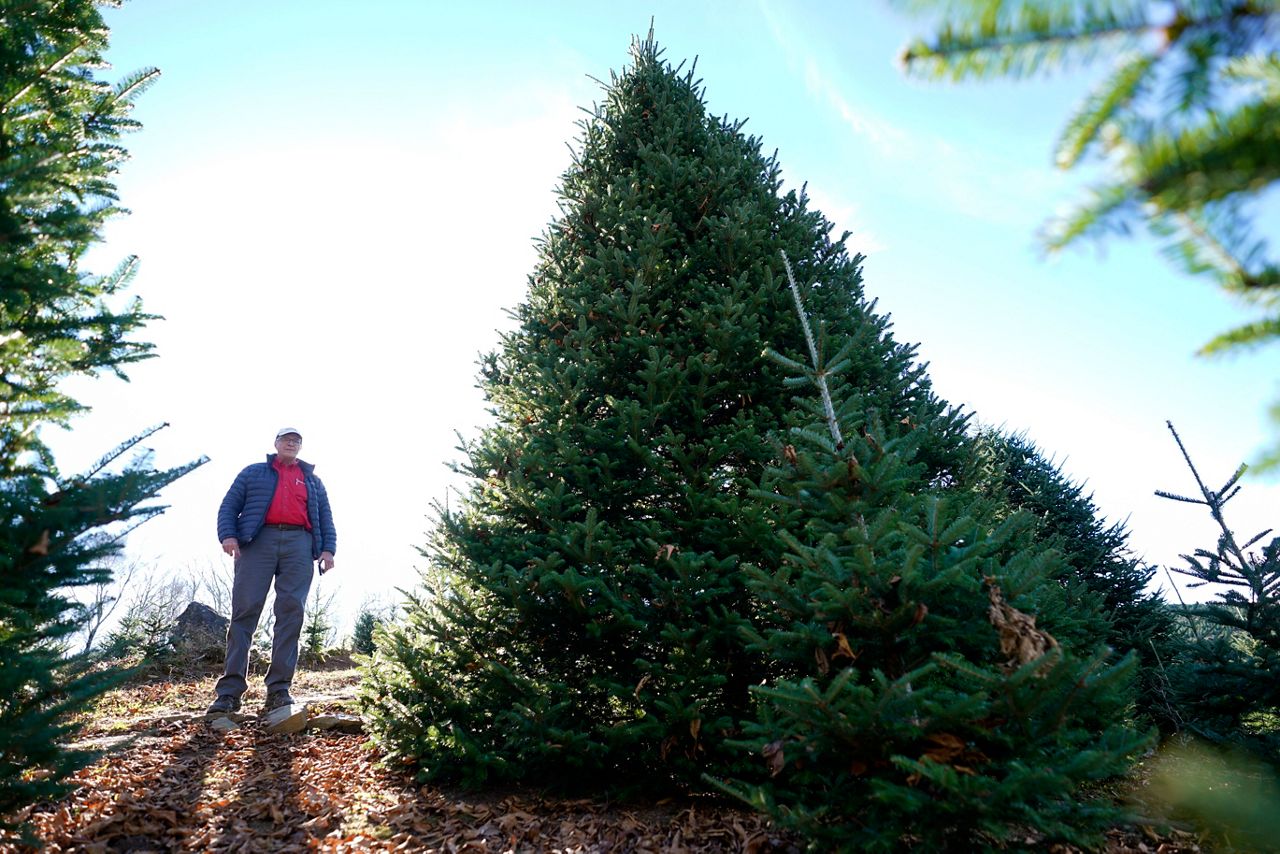
Cartner's Christmas Tree Farm in Newland, founded in 1959, lost more than 5,000 trees during Helene. Luckily, many of the trees lost were smaller and didn't have a major impact on this harvest season, according to the farm owner.
This year, the White House will display a 20-foot Fraser Fir from Cartner's Christmas Tree Farm. The White House said the tree will showcase the resilience of communities across western North Carolina.
The White House Christmas tree en route from western N.C. to Washington
Tourism continues to impact businesses in western North Carolina, as Helene hit during the area's busiest season - fall.
Voting
Helene arrived just weeks before the election, impacting how people in affected areas cast their ballot.
The North Carolina State Board of Elections unanimously passed an emergency resolution, making several voting changes in western North Carolina.
The resolution allowed absentee ballots to be dropped off at Election Day polling places by 7:30 p.m., and it let voters pick up absentee ballots in-person until the day before the election.
Disaster relief
Areas outside of western North Carolina also saw devastation from flooding, like residents who live along Riverside Drive in Charlotte.
Floodwaters from the Catawba River reached inside nearby homes on stilts. Because the flood water was contaminated with septic waste and chemicals from things like gasoline, many items in the homes could not be salvaged.
Initially, Mecklenburg County was not declared a disaster area by FEMA, but that has since changed.
Mecklenburg County residents impacted by Helene can apply for FEMA relief now
Those impacted by Helene in North Carolina can apply for disaster relief through FEMA here.
Buncombe County also launched a Helene recovery housing assistance grant starting Dec. 5. Residents impacted by Helene can apply for the grant to receive funding for rent, mortgage or utility payments. The applications closed on Dec. 18.
Western North Carolina is top of mind for many during this season, including rescue missions. The Durham Rescue Mission is providing food for families and toys for children in the Asheville area. The events are happening Dec. 20 and 21 from 3 p.m. to 6 p.m. in the Ashe County Sheriff's Office parking lot, located at 140 Law Enforcement Drive in Jefferson.
There will be a barbecue dinner, hotdogs, chips and toy distributions for children ages 12 and under. There will also be a door prize drawing. Walk-up volunteers are welcome.
Reopenings
Most state parks in western North Carolina have reopened after the storm forced them to close. Chimney Rock, Mount Mitchell and South Mountains State Park are closed longterm, according to the N.C. Division of Parks and Recreation.
"So many special places and communities were damaged in a way that will take months and years to restore," park officials posted. "Some of these special places in WNC will be permanently altered."
In October, all state parks west of Interstate 77 were closed.
A bridge on U.S. 70 reopened Tuesday to alleviate congestion in Buncombe County. The bridge is carrying traffic for the first time since Helene caused structural damage.
More than 1,230 roads across our mountain region closed after the storm. Now, there are less than 190 remaining road closures, according to the North Carolina Department of Transportation.
With travel and tourism steadily reopening in western North Carolina, businesses, families and communitites hope to repair and rebuild.





